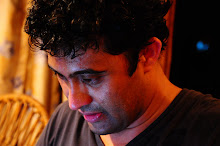It was fantastic to hear from an old friend and colleague some days ago, when she called me wanting to know if I wished to participate in efforts to help address the needs of skill development and training in India. She had recently returned to India along with her husband after spending a couple of years studying in an ivy league institution and pursuing her efforts in global healthcare and other related areas. She was concerned about the issues of youth employability in India and felt that urgent and concerted initiatives were required to help create employbility at scale for the youth of the country. Studies have indicated that India has a "demographic dividend" for the next 25 years or so - the 325 million people in the age group of 15 - 29 years - making India the country with the youngest workforce, with a median age well below that of China and other developed economies. Failure to reap this dividend, she felt, would have difficult consequences for the society over a period of time as unemployed and misguided youth would turn to other means for sustainance.
The conversation with her led to some further research on my part. I learnt how out of the 13 million new entrants to the workforce in India, currently no more than 20% receive skill training. And in our existing workforce, only 2% have skill training. In other developed countries, this figure ranges from 70% to over 90%. It appears that this is now becoming a key priority for the government and they are looking to make policy changes and encourage investment by the private sector as well. This is indeed encouraging. However, the overall picture still appears unclear in terms of concrete steps and action.
I have been privileged to work in an organisation and an indistry which has contributed towards employment of youth in a significant way, not only in India but in other countries around the world. My perspective (as a layman) is that for a country to progress, it requires the articulation of a clear and all encompassing vision which can then be executed by different nodes of the economy, working in conjunction and complemeting each other. An opportunity of this scale cannot be achieved unless various parties are galvanised into action - the government, civil services, educational institutions, not-for-profit organisations, as well as the private sector. The government ought to set the direction and policy, and take away bureacratic hurdles to the creation of new and collaborative models for skill development and employment; the private sector needs to be incented to participate with the promise of longer term benefits rather than immediate gains. Partnerships and helpful networks will lay the foundation of this progress...between each of these nodes. This is no different from how any corporation to operate...first by articulating its vision, and then aligning its various functions to execute to the vision.
But even doing all of that does not necessarily achieve sustainability. For that I continue to believe that in our next generation we need to focus on building Competence, Character and a Desire to Excel...which I consdier to be three pillars of sustainable all round development in society. Sustainability will necessarily require our people to discharge their obligations towards one another and to the society at large. And it is time we inculcated that in our people.
I was grateful to her for having thought of me and we ended the call with a resolve to think further about this and engage with some other like minded people. I hope to contribute in any small and humble way to this cause that I am capable of.
The will surely exists...now to find the way!
Saturday, June 27, 2009
Subscribe to:
Post Comments (Atom)





















2 comments:
While i agree with the recipe you mentioned for the youth in India, i also believe that before all that we need to rouse our youth from the slumber of 'easy' money and material gratification. Its not just the government corporate partnership that is enough, we need this 'demographic dividend' to WANT it as well, and that is the tougher part. Another daunting task will be to take it to our villages and towns where most of our youth reside.
Totally agree with that, Praneet. We have been brought up to seek success only in material terms and that too just for ourselves and our families...which limits the potential of our country as we constantly try and optimise at the individual level often at the cost of others. That is where the role of education comes in...to bring up a new generation of people who will feel the need to do more. And while this is daunting, it can be made possible. After all, an entire generation did give up their individual interest to fight for the freedom of the nation only a few decades ago.
Post a Comment